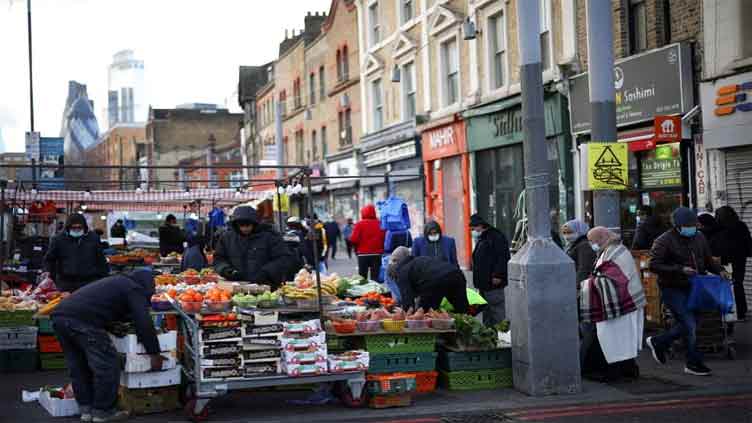UK's surging shop price inflation slows in June: BRC

Business
The Bank of England last week raised borrowing costs to their highest since 2008
LONDON (Reuters) – British shop price inflation slowed this month, offering a bit of respite for households hit by a surge in the cost of living and higher borrowing costs, a survey showed on Tuesday.
The British Retail Consortium said prices in supermarkets and retail chains rose by 8.4 per cent in June compared with the same month last year, down from May's 9.0pc annual increase which was the highest rate since the BRC's records began in 2005.
The fall in shop price inflation was the second this year after the BRC reported a slight dip in April.
Food prices rose less slowly for a second month in a row but at 14.6pc the increase continued to represent a big strain on the households of many families.
"If the current situation continues, food inflation should drop to single digits later this year." BRC chief executive Helen Dickinson said.
Retailers cut the price of staples such as milk, cheese and eggs while clothing and electrical goods also saw falling prices, she said.
Earlier this month, Tesco, Britain's biggest retailer, said food inflation had peaked.
Read more: Why is UK food inflation so stubbornly high?
The Bank of England last week raised borrowing costs to their highest since 2008, taking its benchmark Bank Rate to 5pc, as it ramped up its fight against inflation that has fallen more slowly than it hoped.
"If global supply chain costs continue to fall, we may now be past the peak of price increases," Mike Watkins, Head of Retailer and Business Insight at NielsenIQ which co-produces the data, said.
"However, with most households needing to save money, purchasing behaviour for the rest of this year is still likely to shift towards essential needs with discretionary consumption being de-prioritised or delayed."
The BRC data was based on prices collected June 1-7.

